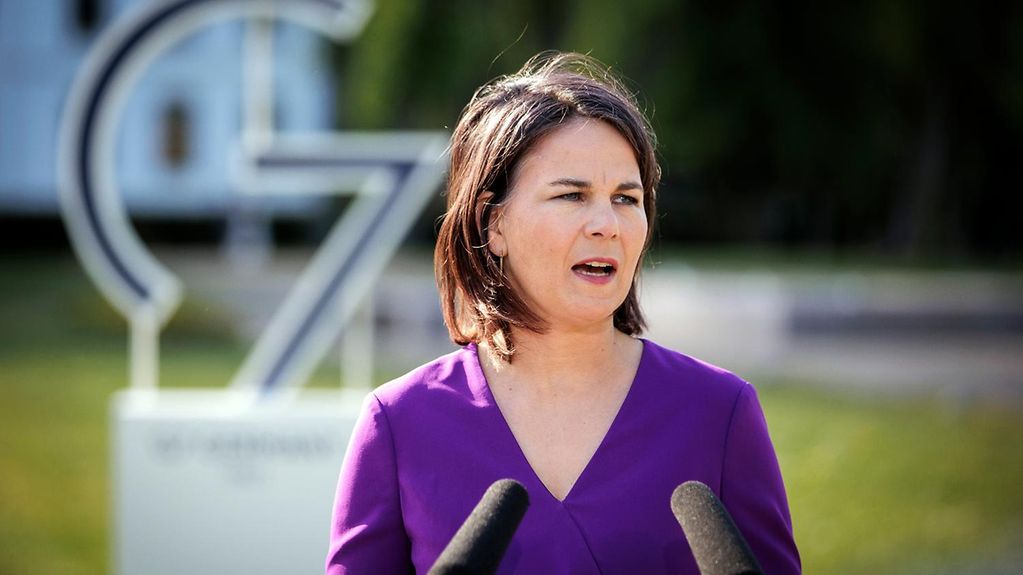Meeting of the G7 foreign ministers in Weissenhaus
The foreign ministers of the G7 states discussed the consequences of the Russian war of aggression against Ukraine in detail during their meeting in Weissenhaus in Schleswig-Holstein. Further key issues addressed included deliveries of arms and export routes for grain from Ukraine.

With reference to blocked Ukrainian grain exports, Foreign Minister Baerbock accused Russia of leading a “grain war”.
Photo: Janine Schmitz/photothek.de
“We will never recognise any borders that Russia has attempted to move through military aggression.” This was announced by the foreign ministers of the G7 states in their joint statement that was issued at the end of their meeting in Weissenhaus in Schleswig-Holstein on Saturday.
Aid will be provided for years if needed
After two and a half days of discussions, during which the ministers also met the Ukrainian Foreign Minister Kuleba and Foreign Minister Popescu of Moldova, the foreign ministers of the G7 states expressed their willingness to grant Ukraine military and defence assistance for years to come, should this be necessary. In the press conference that concluded the meeting, Foreign Minister Baerbock mentioned that Ukraine’s request for the delivery of fighter jets had also been discussed.
Blockage of Ukrainian grain exports
Russia’s blocking of Ukrainian grain exports was a key subject of debate during the G7 meeting. Foreign Minister Baerbock accused Russia of leading a “grain war”, and continued to say that Russia was jeopardising global grain supply by blocking the Ukrainian ports. The G7 states had discussed among each other and with the Ukrainian foreign minister how the around 25 million tonnes of grain that are currently stuck at Ukrainian ports can be exported by rail, for example, she continued. Numerous questions had to be addressed, including the fact that the Ukrainian rail network has a different track width than its western neighbours.
Concerning the global consequences of blocking Ukrainian grain exports, the G7 foreign ministers also spoke to Foreign Minister Marsudi of Indonesia via video link. Indonesia is holding the G20 Presidency this year.
“Russia must assume liability for the damage caused”
The foreign ministers of the G7 states also talked about the question of whether frozen Russian assets in other countries could be used to compensate for war damage caused in Ukraine. The Canadian Minister of Foreign Affairs had explained that this was possible based on Canadian law, at least.
In the press conference that concluded the meeting, Foreign Minister Baerbock stressed that the ministers had agreed that Russia as the aggressor was solely responsible for the war damage caused. However, before the step to freeze and seize Russian assets could be taken in the European Union, it had to be clarified that such a step was “legally sound”, she explained.